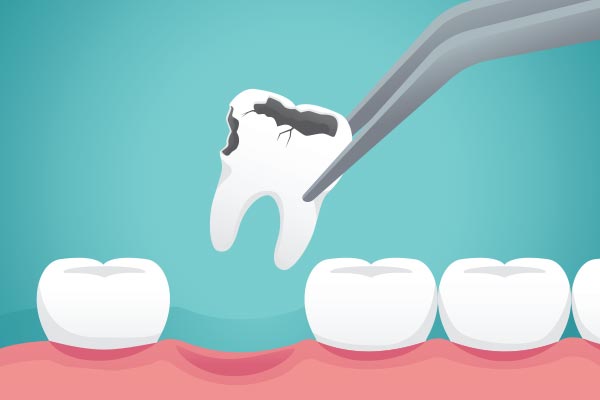
What if we told you that tooth loss could result from something as trivial as bleeding gums? Gum disease is a cunning ailment that frequently begins mildly but can rapidly worsen and ultimately result in tooth extraction. Contrary to popular belief, it is more prevalent, and many people are unaware of the harm it is creating until it is too late.
This blog post will explain how gum disease stealthily targets your teeth and gums and why preserving your smile requires timely treatment. Let’s get started!
Impact of Gum Disease on Your Teeth
Bone and tissue that support your teeth begin to be destroyed as gum disease gets worse. This can result in:
- Gums Recession. As the gums start to separate from the teeth, pockets are formed that may hold bacteria and food.
- Loose Teeth. When bone integrity is destroyed, teeth become less stable and become looser.
- Teeth can begin to move and even fall out on their own as bone loss worsens.
From Gum Disease to Extracting Teeth
Tooth extraction may be required when gum disease progresses to a severe level. This is how it occurs:
- Extreme Infection: An abscess or pus may occur as a result of the gum disease-causing bacteria infecting the tooth’s root. Extraction may be necessary if the infection spreads to the bone and becomes untreatable.
- Bone Loss: The tooth can no longer be held in place by the deteriorating bone that supports it. As a result, the tooth may become loose and require extraction.
When Can Gum Disease Cause Tooth Loss?
You can prevent irreparable damage by identifying the early warning signs of gum disease. Be wary of:
- Bleeding gums during flossing or brushing.
- Red or swollen gums that hurt or feel sensitive.
- Bad breath or a persistently unpleasant flavor.
- Longer-looking teeth or receding gums.
- Loose teeth that alter position or feel unsteady.
It’s time to get evaluated by a dentist if you observe any of these symptoms.
Price To Pay for Postponing Dental Care
Nearly 47% of persons over 30 suffer from gum disease, according to research. Ignoring it can have serious repercussions. Gum disease can result in the following if treatment is delayed:
- More chance of tooth loss as a result of infection and significant bone loss.
- High expenses for treatment when options like bone grafting or tooth extraction are required.
- General health problems since diabetes, heart disease, and even stroke have been connected to untreated gum disease.
Gum disease has the potential to subtly worsen and eventually result in tooth extraction. The good news is that with frequent dental checkups and good oral hygiene, it can be avoided. You can prevent extractions and save your teeth by acting quickly to treat gum disease as soon as it becomes problematic. In order to maintain a strong yet attractive smile, take control of your dental health now. How? By reaching out to our trusted dentist today!

